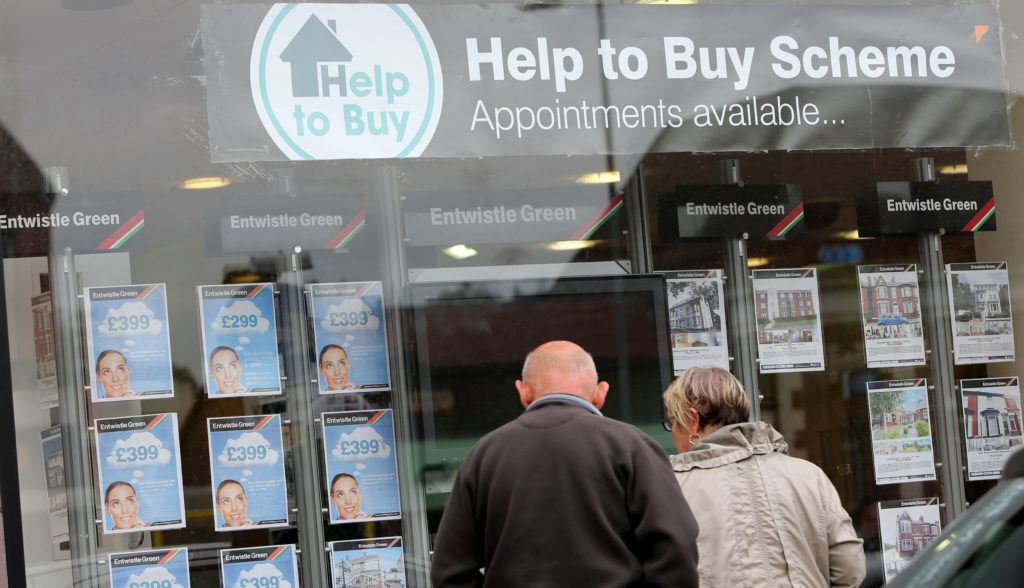Credit: CNP/SIPA, USA/PA Images
The Tarbell Column
*
“Housing policy… perhaps nowhere has Tory policy failure been so complete and so damaging to our people,’ boomed Jeremy Corbyn at the Labour conference in October 2016. Corbyn was absolutely right. This is part of a trend of left-wing politicians and writers highlighting the genuinely important problems – even if they often propose heavy-handed, misguided solutions.
For decades, far too few homes have been built in the UK. Under governments of all stripes, house building has fallen woefully short of what is needed to accommodate even the natural expansion of British population, let alone immigration. The result has been spiraling prices and the emergence of ‘generation rent’. A decade ago, almost 60% of 25 to 34 year-olds owned their own home. Now it’s under 40%.
The Conservatives made the disastrous error of stoking up the demand side of the housing market via its ‘Help to Buy’ scheme – rather than taking measures to rein in prices by ensuring more homes are built. Since taking office in 2010, the Tories have allowed the UK’s oligopolistic house-building industry to amass vast landbanks and delay the conversion of planning permissions in actual homes, boosting prices and profits by imposing a deliberate house-building go-slow.
Corbyn, in his October 2016 speech, hit the nail on the head. Tory housing policy has indeed failed –including for voters who should be natural Conservatives. It was the unaffordability of housing, I’d say, more than any other single factor, which explained Corbyn’s appeal among young adults, professionals and non-graduates alike, in the June 2017 general election. Tory policy has not only failed to address the UK’s chronic housing shortage, but has actually made it much worse.
The Corbyn position on housing is a good illustration of ‘what the left gets right’. Another is the stand US Democrat Elizabeth Warren has taken on banking reform. The Senator for Massachusetts has spent years highlighting how some of the US banks that almost brought down the global financial system, and then required multi-billion dollar bailouts, remain ‘too big to fail’.
Warren has campaigned ceaselessly to restore a proper split between US investment and commercial banking. She has identified – correctly – that the Western financial system remains unstable because large banks take in the deposits of ordinary firms and households that enjoy a state-guarantee, but also engage in high-risk trading activities.
The ‘co-mingling’ of these two activities means traders gamble irrationally, knowing their institution will be bailed-out given the need to protect ordinary deposits. Such ‘moral hazard’ continues despite measures brought in since the 2008 financial crisis to separate trading and deposit-taking – measures repeatedly watered-down by the mighty banking lobby. Important elements of the sweeping Dodd-Frank Act have been repealed under both the Obama and Trump administrations – and there are signs of more dilutions to come.

Warren wants to restore the ‘Glass Steagall’ divide between investment and commercial banking, breaking up the large ‘universal banks’. Amen to that. Introduced in 1933, the Glass-Steagall legislation, and its less formal UK equivalent, protected Western banks from major systemic crises for over sixty decades. Since the Depression-era law was repealed in 1997, after President Bill Clinton succumbed to Wall Street lobbying, financial markets everywhere have lurched from crisis to crisis.
“For years, banks have been in a feeding frenzy, swallowing up smaller competitors to become more powerful and, eventually, too big to fail,” said Warren, in a seminal speech in June 2016. “And today, eight years after the financial crisis, three out of the four biggest banks in America are even bigger than they were before”.
Very few Conservative politicians, on either side of the Atlantic, have called out the post-Lehman banking reforms for the inadequate half-measures that they are. Warren, almost alone among senior legislators anywhere, is carrying the flame for necessary root-and-branch changes – even though the Federal Reserve itself has designated America’s five largest banks as ‘too big to fail’.
She has, in fact, launched a broadside against growth of competition-stifling consolidation across a range of US sectors – from airlines to banks and health insurance. Warren was also the first senior politician I know of to point the finger at the overwhelming monopoly power of the tech giants Google, Amazon and Facebook. “They deserve to be highly profitable and successful – but the opportunity to compete must remain open for new entrants and smaller competitors that want their chance to change the world again,” she said in the summer of 2016. “Today in America, competition is dying … concentration threatens our markets, threatens our economy, and threatens our democracy”.
Sometimes the Left’s analysis is good but its answers are dangerous nonsense. Part of Corbyn’s solution to the UK housing crisis is draconian rent controls – which would, of course, simply cut the number of properties available to rent. The Labour leader wants to use ‘people’s QE’ – a turbo-charged version of central bank money printing – to fund the building of hundreds of thousands of state-owned homes. Such ideas are deeply counter-productive. Yes, the UK needs more low-rent social housing but far better to get the incentives right so the private sector builds quality homes on the scale required to address the UK’s chronic home shortage.
In other cases, such as Elizabeth Warren’s analysis of the Western banking complex, the Left gets it right in terms of both the problem and what needs to be done. I personally think that Warren’s manifesto, in the hands of a Democrat who can connect with the US ‘rust-belt’, reestablishing the party’s blue-collar credentials, would go a long way towards winning the White House.
I’m generally a business-friendly commentator who believes in low taxes and a small state. In my view, much of what Americans call ‘liberalism’ – in its modern-day, reactionary form – is unwise. Yet I’d increasingly credit ‘the Left’ with some of the best, most courageous and clear-sighted policy analysis – lots of which I agree with, even if the proposed solutions sometimes make me balk.
Big companies across the Western world have become far too powerful. Our political, business and media elites are much too intertwined. Such cosy relationships have resulted in an enfeebled competition policy, which is further increasing the might of a small number of corporations, to the detriment of consumers, smaller firms and broader society. We’ll soon need the kind of bold anti-trust measures that America reached for in the late nineteenth and early twentieth century – policies championed by Ida Tarbell, the journalist whose name is the title of this column and was the subject of this UnHerd video profile.
These views are increasingly finding favour with a broad swathe of the electorate. Yet such positions, which are essentially pro-market even if they aren’t pro-business, are now more likely to be posited by left-wing commentators and politicians, rather than those on the right.
Part of the reason, of course, is the link between ideas and vested interests. While the Left has traditionally generated party funding from trade unions and small individual donors, the Right relies to a greater extent on corporate cash. That’s not helpful when voters have fallen out of love with the big banks and utility companies and are increasingly sick of ‘big corporations’.
Yet it’s not as simple as that. The Democrats, under both the Clintons and Obama, took corporate dollar on a huge scale, becoming deeply enamored of the tech titans and getting even closer to Wall Street than their Republican rivals. Warren’s financial reforms might make some headway, were lawmakers from her own party not constantly urging her to keep her mouth shut. The UK’s Labour party, too, under Tony Blair, abandoned its traditional loyalty to lower income voters, making up for years of frosty relations with business by becoming far too close. Blair’s ‘New Labour’ tribe was transfixed by the corporate money-men, putty in the hands of corporate lobbyists (as Douglas Murray recognised in his column last Friday).

While the Right’s link to corporate money is umbilical, from the mid-1990s the Left has been determined to get in on that act. The response in the UK has been Jeremy Corbyn, saying things about the political-financial nexus that very much need to be said. And, of course, another left-wing firebrand, Bernie Sanders, has been making the running on campaign finances in the US.
“We now have a political situation where billionaires are literally able to buy elections and candidates,” Sanders says, without apology. “This is not what this country is supposed to be about”.
Whether you come from the Left or the Right, however you vote, Sanders is surely right to shout about this problem and to keep shouting.
“This is not Abraham Lincoln’s vision of a government of the people, by the people, and for the people”. Amen to that, too.







Join the discussion
Join like minded readers that support our journalism by becoming a paid subscriber
To join the discussion in the comments, become a paid subscriber.
Join like minded readers that support our journalism, read unlimited articles and enjoy other subscriber-only benefits.
Subscribe